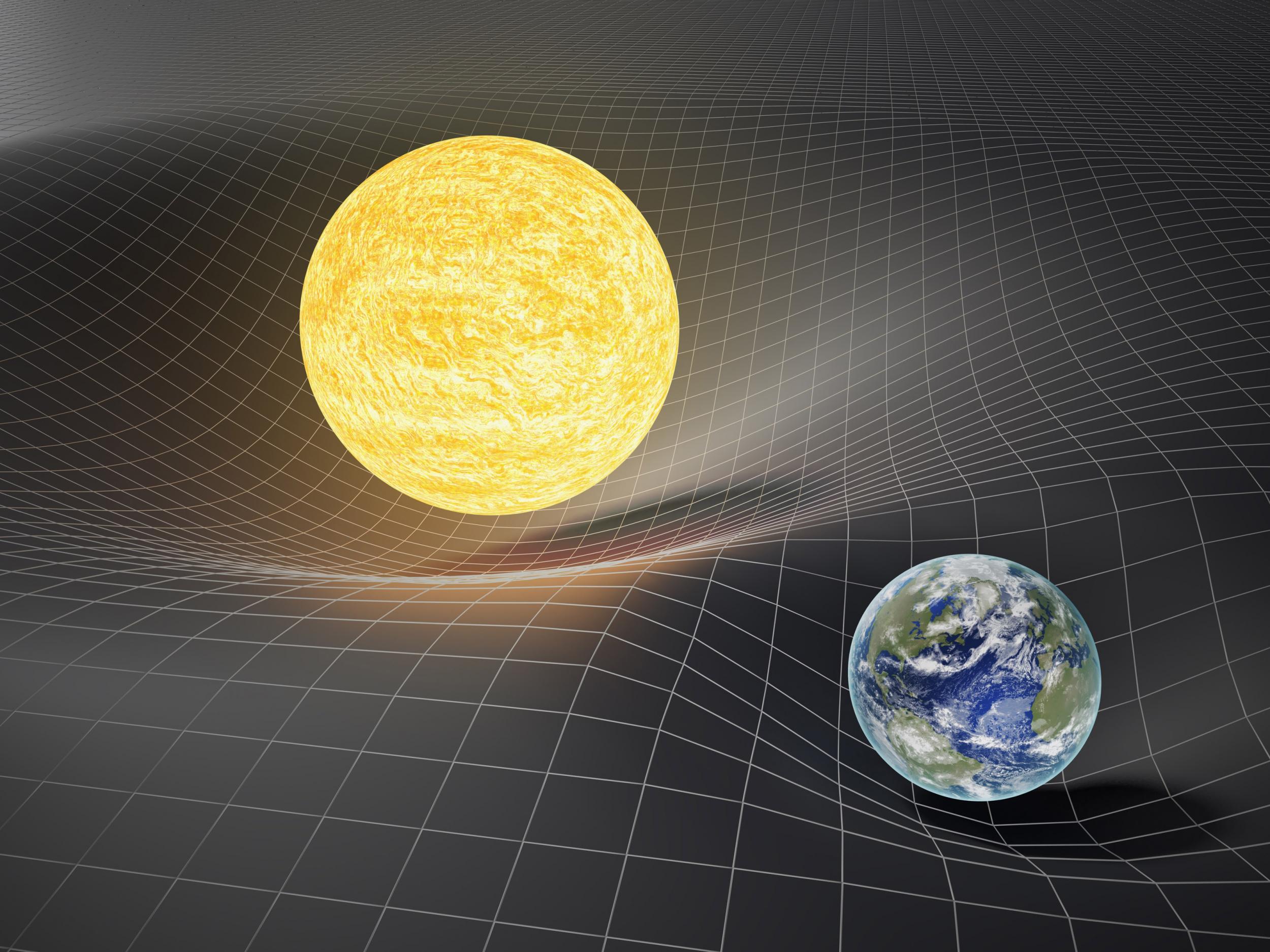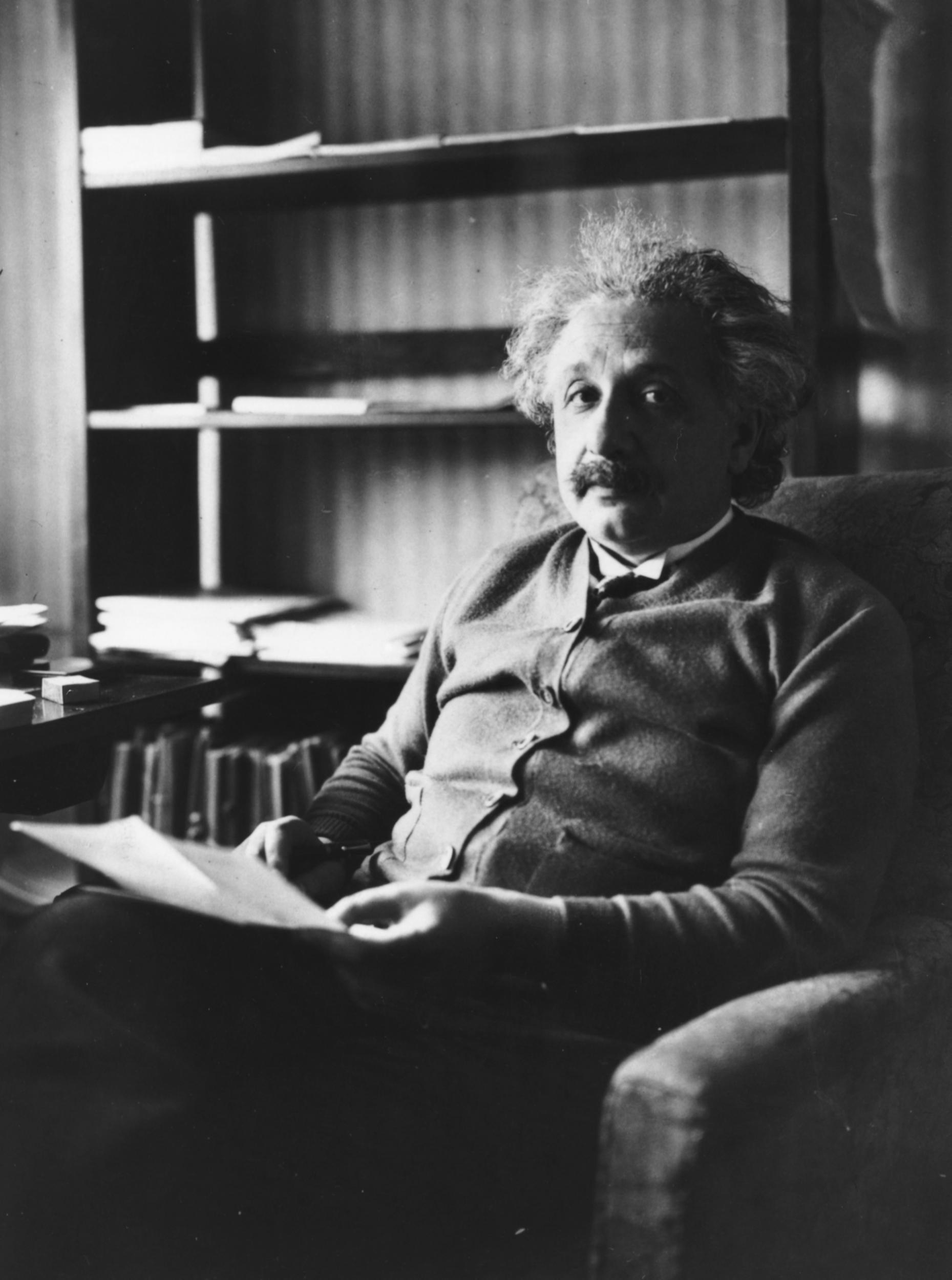
Despite huge advances in science over the past century, our understanding of nature is still far from complete. Not only have scientists failed to find the holy grail of physics – unifying the very large (general relativity) with the very small (quantum mechanics) – they still don’t know what the vast majority of the universe is made up of. The sought-after theory of everything continues to elude us. And there are other outstanding puzzles, too, such as how consciousness arises from mere matter.
Will science ever be able to provide all the answers? Human brains are the product of blind and unguided evolution. They were designed to solve practical problems impinging on our survival and reproduction not to unravel the fabric of the universe. This realisation has led some philosophers to embrace a curious form of pessimism, arguing that there are bound to be things we will never understand. Human science will therefore one day hit a hard limit – and may already have done so.
Some questions may be doomed to remain what the American linguist and philosopher Noam Chomsky called “mysteries”. If you think that humans alone have unlimited cognitive powers – setting us apart from all other animals – you have not fully digested Darwin’s insight that Homo sapiens is very much part of the natural world.
But does this argument really hold up? Consider that human brains did not evolve to discover their own origins either. And yet somehow we managed to do just that. Perhaps the pessimists are missing something.
Mysterian arguments
“Mysterian” thinkers give a prominent role to biological arguments and analogies. In his 1983 landmark book The Modularity of Mind, the late philosopher Jerry Fodor claimed that there are bound to be “thoughts that we are unequipped to think”.
Similarly, philosopher Colin McGinn has argued – in a series of books and articles – that all minds suffer from “cognitive closure” with respect to certain problems. Just as dogs or cats will never understand prime numbers, human brains must be closed off from some of the world’s wonders. McGinn suspects that the reason why philosophical conundrums such as the mind-body problem – how physical processes in our brain give rise to consciousness – prove to be intractable is that their true solutions are simply inaccessible to the human mind.
If McGinn is right that our brains are simply not equipped to solve certain problems, there is no point in even trying, as they will continue to baffle and bewilder us. McGinn himself is convinced that there is, in fact, a perfectly natural solution to the mind-body problem, but that human brains will never find it.
Even the psychologist Steven Pinker, someone who is often accused of scientific hubris himself, is sympathetic to the argument of the mysterians. If our ancestors had no need to understand the wider cosmos in order to spread their genes, he argues, why would natural selection have given us the brainpower to do so?
Mind-boggling theories
Mysterians typically present the question of cognitive limits in stark, black-or-white terms: either we can solve a problem, or it will forever defy us. Either we have cognitive access or we suffer from closure. At some point, human inquiry will suddenly slam into a metaphorical brick wall, after which we will be forever condemned to stare in blank incomprehension.
Another possibility, however, which mysterians often overlook, is one of slowly diminishing returns. Reaching the limits of inquiry might feel less like hitting a wall than getting bogged down in a quagmire. We keep slowing down, even as we exert more and more effort, and yet there is no discrete point beyond which any further progress at all becomes impossible.
There is another ambiguity in the thesis of the mysterians, which my colleague Michael Vlerick and I have pointed out in an academic paper. Are the mysterians claiming that we will never find the true scientific theory of some aspect of reality, or alternatively, that we may well find this theory but will never truly comprehend it?
In the science fiction series The Hitchhiker’s Guide to The Galaxy, an alien civilisation builds a massive supercomputer to calculate the “Answer to the Ultimate Question of Life, the Universe and Everything”. When the computer finally announces that the answer is “42”, no one has a clue what this means (in fact, they go on to construct an even bigger supercomputer to figure out precisely this).
Is a question still a “mystery” if you have arrived at the correct answer, but you have no idea what it means or cannot wrap your head around it? Mysterians often conflate those two possibilities.
In some places, McGinn suggests that the mind–body problem is inaccessible to human science, presumably meaning that we will never find the true scientific theory describing the mind–body nexus. At other moments, however, he writes that the problem will always remain “numbingly difficult to make sense of” for human beings, and that “the head spins in theoretical disarray” when we try to think about it.
This suggests that we may well arrive at the true scientific theory but it will have a 42-like quality to it. But, then again, some people would argue that this is already true of a theory like quantum mechanics. Even the quantum physicist Richard Feynman admitted, “I think I can safely say that nobody understands quantum mechanics”.
Would the mysterians say that we humans are “cognitively closed” to the quantum world? According to quantum mechanics, particles can be in two places at once or randomly pop out of empty space. While this is extremely hard to make sense of, quantum theory leads to incredibly accurate predictions. The phenomena of “quantum weirdness” has been confirmed by several experimental tests, and scientists are now also creating applications based on the theory.
Mysterians also tend to forget how mind-boggling some earlier scientific theories and concepts were when initially proposed. Nothing in our cognitive make-up prepared us for relativity theory, evolutionary biology or heliocentrism.
As the philosopher Robert McCauley writes: “When first advanced, the suggestions that the Earth moves, that microscopic organisms can kill human beings, and that solid objects are mostly empty space were no less contrary to intuition and common sense than the most counterintuitive consequences of quantum mechanics have proved for us in the 20th century”. McCauley’s astute observation provides reason for optimism not pessimism.
Mind extensions
But can our puny brains really answer all conceivable questions and understand all problems? This depends on whether we are talking about bare, unaided brain power or not. There’s a lot of things you can’t do with your naked brain. But Homo sapiens is a tool-making species, and this includes a range of cognitive tools.
For example, our unaided sense organs cannot detect UVlight, ultrasound waves, X-rays or gravitational waves. But if you’re equipped with some fancy technology you can detect all those things. To overcome our perceptual limitations, scientists have developed a suite of tools and techniques: microscopes, X-ray film, Geiger counters, radio satellites detectors and so forth.
All these devices extend the reach of our minds by “translating” physical processes into some format that our sense organs can digest. So are we perceptually “closed” to UV light? In one sense, yes. But not if you take into account all our technological equipment and measuring devices.

In a similar way, we use physical objects (such as paper and pencil) to vastly increase the memory capacity of our naked brains. According to the British philosopher Andy Clark, our minds quite literally extend beyond our skins and skulls, in the form of notebooks, computers screens, maps and file drawers.
Mathematics is another fantastic mind-extension technology, which enables us to represent concepts that we couldn’t think of with our bare brains. For instance, no scientist could hope to form a mental representation of all the complex interlocking processes that make up our climate system. That’s exactly why we have constructed mathematical models and computers to do the heavy lifting for us.
Cumulative knowledge
Most importantly, we can extend our own minds to those of our fellow human beings. What makes our species unique is that we are capable of culture, in particular cumulative cultural knowledge. A population of human brains is much smarter than any individual brain in isolation.
And the collaborative enterprise par excellence is science. It goes without saying that a single scientist would not be capable of unravelling the mysteries of the cosmos on her own. But collectively, they do. As Isaac Newton wrote, he could see further by “standing on the shoulders of giants”. By collaborating with their peers, scientists can extend the scope of their understanding, achieving much more than any of them would be capable of individually.
Today, fewer and fewer people understand what is going on at the cutting edge of theoretical physics – even physicists. The unification of quantum mechanics and relativity theory will undoubtedly be exceptionally daunting, or else scientists would have nailed it long ago already.
The same is true for our understanding of how the human brain gives rise to consciousness, meaning and intentionality. But is there any good reason to suppose that these problems will forever remain out of reach? Or that our sense of bafflement when thinking of them will never diminish?

In a public debate I moderated a few years ago, the philosopher Daniel Dennett pointed out a very simple objection to the mysterians’ analogies with the minds of other animals: other animals cannot even understand the questions. Not only will a dog never figure out if there’s a largest prime, but it will never even understand the question. By contrast, human beings can pose questions to each other and to themselves, reflect on these questions, and in doing so come up with ever better and more refined versions.
Mysterians are inviting us to imagine the existence of a class of questions that are themselves perfectly comprehensible to humans but the answers to which will forever remain out of reach. Is this notion really plausible (or even coherent)?
Alien anthropologists
To see how these arguments come together, let’s do a thought experiment. Imagine that some extraterrestrial “anthropologists” had visited our planet around 40,000 years ago to prepare a scientific report about the cognitive potential of our species. Would this strange, naked ape ever find out about the structure of its solar system, the curvature of space-time or even its own evolutionary origins?
At that moment in time, when our ancestors were living in small bands of hunter-gatherers, such an outcome may have seemed quite unlikely. Although humans possessed quite extensive knowledge about the animals and plants in their immediate environment, and knew enough about the physics of everyday objects to know their way around and come up with some clever tools, there was nothing resembling scientific activity.
There was no writing, no mathematics, no artificial devices for extending the range of our sense organs. As a consequence, almost all of the beliefs held by these people – about the broader structure of the world – were completely wrong. Human beings didn’t have a clue about the true causes of natural disaster, disease, heavenly bodies, the turn of the seasons or almost any other natural phenomenon.

Our extraterrestrial anthropologist might have reported the following:
“Evolution has equipped this upright, walking ape with primitive sense-organs to pick up some information that is locally relevant to them, such as vibrations in the air (caused by nearby objects and persons) and electromagnetic waves within the 400-700 nanometer range, as well as certain larger molecules dispersed in their atmosphere.
“However, these creatures are completely oblivious to anything that falls outside their narrow perceptual range. Moreover, they can’t even see most of the single-cell life forms in their own environment because these are simply too small for their eyes to detect. Likewise, their brains have evolved to think about the behaviour of medium-sized objects (mostly solid) under conditions of low gravity.
“None of these earthlings has ever escaped the gravitational field of their planet to experience weightlessness, or been artificially accelerated so as to experience stronger gravitational forces. They can’t even conceive of space-time curvature, since evolution has hard-wired zero-curvature geometry of space into their puny brains.
“In conclusion, we’re sorry to report that most of the cosmos is simply beyond their ken.”
But those extraterrestrials would have been dead wrong. Biologically, we are no different than we were 40,000 years ago but now we know about bacteria and viruses, DNA and molecules, supernovas and black holes, the full range of the electromagnetic spectrum and a wide array of other strange things.
We also know about non-Euclidean geometry and space-time curvature, courtesy of Einstein’s general theory of relativity. Our minds have “reached out” to objects millions of light years away from our planet, and also to extremely tiny objects far below the perceptual limits of our sense organs. By using various tricks and tools, humans have vastly extended their grasp on the world.
The verdict: biology is not destiny
The thought experiment above should be a counsel against pessimism about human knowledge. Who knows what other mind-extending devices we will hit upon to overcome our biological limitations? Biology is not destiny. If you look at what we have already accomplished in the span of a few centuries, any rash pronouncements about cognitive closure seem highly premature.
Mysterians often pay lip service to the values of “humility” and “modesty” but, on closer examination, their position is far less restrained than it appears. Take McGinn’s confident pronouncement that the mind–body problem is “an ultimate mystery” that we will “never unravel”. In making such a claim, McGinn assumes knowledge of three things: the nature of the mind–body problem itself, the structure of the human mind, and the reason why never the twain shall meet. But McGinn offers only a superficial overview of the science of human cognition and pays little or no attention to the various devices for mind extension.
I think it’s time to turn the tables on the mysterians. If you claim that some problems will forever elude human understanding, you have to show – in some detail – why no possible combination of mind-extension devices will bring us any closer to a solution. That is a taller order than most mysterians have acknowledged.
Moreover, by spelling out exactly why some problems will remain mysterious, mysterians risk being hoisted by their own petard. As Dennett wrote in his latest book: “As soon as you frame a question that you claim we will never be able to answer, you set in motion the very process that might well prove you wrong: you raise a topic of investigation.”
In one of his infamous memorandum notes on Iraq, former US secretary of defence Donald Rumsfeld makes a distinction between two forms of ignorance: the “known unknowns” and “unknown unknowns”. In the first category belong things that we know we don’t know. We can frame the right questions but we haven’t found the answers yet. And then there are the things that “we don’t know we don’t know”. For these “unknown unknowns” we can’t even frame the questions yet.
It is quite true that we can never rule out the possibility that there are such “unknown unknowns” and that some of them will forever remain unknown, because for some (unknown) reason human intelligence is not up to the task.
But the important thing to note about these “unknown unknowns” is that nothing can be said about them. To presume, from the outset, that some “unknown unknowns” will always remain unknown, as mysterians do, is not modesty – it’s arrogance.
Maarten Boudry is a postdoctoral researcher of the philosophy of science at Ghent University. This article first appeared on The Conversation







